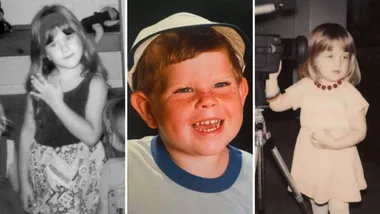Divorce can be one of the most painful experiences in life. Yet it doesn’t have to be that way — more couples are working to keep their split friendly for the sake of the children, write Michael Sheather and Sue Williams.
For Pru Quinlan, marriage wasn’t exactly the happy ever after she’d imagined it to be.
Pru and her husband, Steve, were going through a tough time: running an under-performing business, trying to balance the strains of sales pressure, a mortgage, a gruelling seven-day-a-week schedule and the needs of their two young sons, Zac and Dan.
Related: The five arguments that can destroy your relationships
Their 11-year relationship was starting to crack under the pressure and they had consulted a marriage counsellor. Even so, Pru didn’t see what was coming.
“We were under a lot of stress, living in each other’s pockets,” recalls Pru, 45, of her separation 10 years ago.
“Looking back, I can see now that we were growing in different directions. It just caused us to re-evaluate where we were. Steve wasn’t happy, so he did the leaving, not me. To say it was a shock is an understatement. I could have been blindsided by a runaway truck and been less surprised.”
Pru found herself alone, angry and resentful, caring for their two sons, then 18 months and five years old.
The situation had all the hallmarks of a thousand other bitter divorces — screaming matches, recriminations, spiteful property negotiations and duelling lawyers.
Yet Pru and Steve avoided that all too common war of attrition. They managed to find common ground — their love for their children — which helped them to navigate a way to a civilised divorce.
“You know when a marriage is starting to have issues, but what counts is how you choose to work through those issues,” says Pru, now an award-winning public relations consultant.
“For us, Steve chose to end the marriage. In retrospect, it was a good decision. In fact, where we have gone over the past few years, it was a great decision. We are now still good friends. We are probably better friends now than we may have been when we were life partners.”
Today, Steve and Pru both have changed lives, each with a new partner and children. Yet they live just five minutes from each other on Sydney’s North Shore, close enough for their sons, Dan and Zac, now 15 and 11, to walk between their two homes.
They talk by phone at least a couple of times a week and sometimes drop in on each other for a drink and a chat. Along the way, they have managed to preserve the friendship that formed the basis of their former relationship, while leaving behind any lingering anger and regret.
Both are rightfully proud of what they have achieved.
“I don’t think either of us would say it was easy,” says Steve, 46, a communications consultant. “It took a lot of hard work. But we both agreed that the welfare of our children was the paramount concern. That’s what really mattered.”
These days, there’s an increasing awareness around the world that while divorce is never a happy path, it can be made a great deal less rocky for everyone involved if the couple can remain if not friends, then at least civil with each other.
As well as creating a better atmosphere in which to make custody and financial arrangements, so much more is now known about the extent of the emotional damage inflicted on children when they’re forced to walk on a tightrope between parents over a virtual battlefield.
So much energy can be put into surviving that their sense of self-worth and schoolwork often both suffer, and they can become withdrawn, moody and aggressive.
“It can be incredibly destructive,” says psychologist Dr Sarah Edelman. “Home is where they’re meant to feel safe. It’s the world their parents create. So if that safe environment is suddenly threatened, a child can feel anxious and less secure.”
Read more of this story in the February issue of The Australian Women’s Weekly.
Your say: How did you make your divorce easier for your children?

Video: Hollywood’s most expensive divorces











